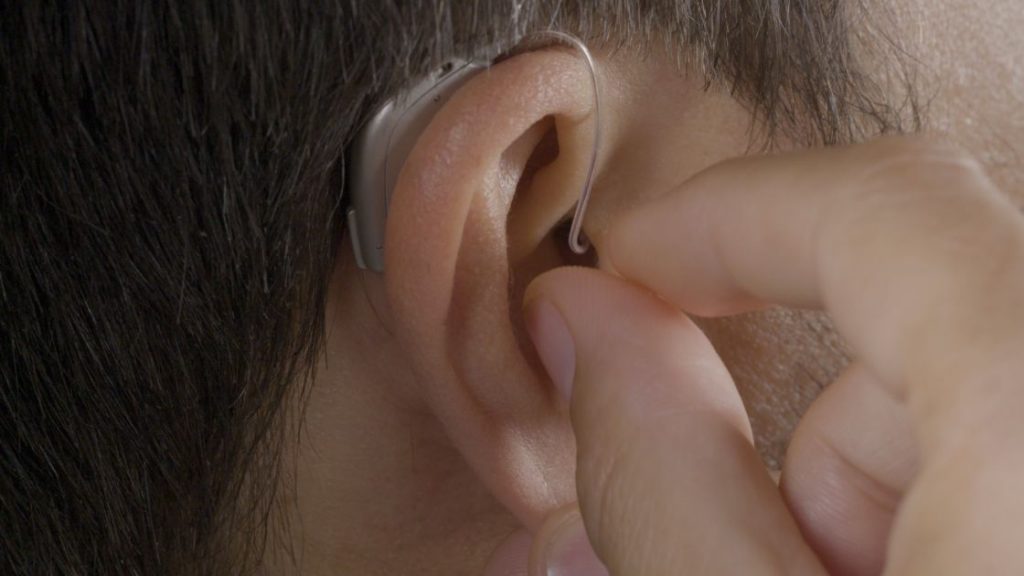All you need to know about being deaf
Being deaf effects 5 per cent of the world’s population, that’s 466 million people, of which 11 million are located in the UK making it the second most common disability.
But unfortunately, as an invisible disability, it often goes unnoticed, meaning that those who live with hearing loss can often be ignored or forgotten.
#DeafAwarenessWeek begins today. As an 'invisible' disability, good leaders exercise vigilance on this issue, which affects 11 million in the UK today and costs Europe an estimated €178 billion annually! That's equivalent to the GDP of the Netherlands. https://t.co/LYgrqrx9zV pic.twitter.com/DBh77qJw5a
— APS Intelligence (@APSintel) May 6, 2019
Types of hearing loss
Conductive hearing loss: conditions affecting the outer and/or middle ear causing hearing loss which is often treatable and may, therefore be temporary.
Sensorineural hearing loss: Disorders of the inner ear or central auditory system causes sensorineural hearing loss which is not normally medically or surgically treatable and is therefore, generally permanent.
Mixed hearing loss: When there is both conductive and sensorineural loss, the onset of a hearing loss can be sudden (a few days), rapid (a few months), or slowly progressive (a few years).
There are varying levels of deafness
Not all deafness is the same, some people can have a slight hearing loss whilst others have no hearing at all. It just depends on the individual and the cause behind the deafness.
The scale starts at mild and goes all the way to profound hearing loss, where the person can’t hear anything, in between is moderate and severe. The hearing loss also depends on the frequency as well, the likelihood of having the same hearing loss across all frequency is very unlikely.
For example, in my case, I have moderate hearing loss with low frequency sounds but severe hearing loss with high frequency sounds.
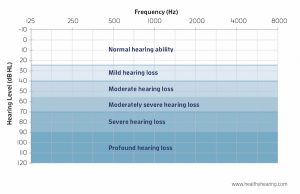
You can have progressive or stagnant hearing loss
Depending on what caused the loss of hearing, some people are lucky enough to have no change in their hearing loss in their lifetime, others are not. A person can go from having a mild hearing loss to being completely deaf in a few years.
There are several ways to help hearing loss, hearing aids, cochlear implant or signing/lip reading
There are so many different ways that we can help someone’s hearing loss, the most common is a hearing aid. A hearing aid is a small amplifying device which is specially made for the individual’s ear, it is for those who have a partial hearing loss.
Another option is a cochlear implant, this is an electronic device that stimulates the auditory nerve through electrodes placed in the cochlear of the inner, allowing some severely deaf people to perceive sounds. This requires surgery and can have side effects so it is not always an option for some people.
For those who choose not to have a hearing aid or a cochlear implant, the only other options that can help them is sign language and lip reading. Sign language is normally used amongst those with severe hearing losses, this is because their hearing loss isn’t suitable to hearing aids and they either don’t qualify for a cochlear implant or choose not to have one.
Lip reading is commonly used by all deaf people, even if they have a hearing aid or cochlear implant. This is because even with additional help, deaf people can’t hear everything so having this extra skill does make a difference, especially in social situations where the background noise is loud.
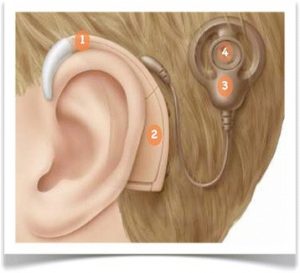
Not every deaf person knows sign language
A question that every deaf person gets is “do you know sign language?” or “can you teach me some sign language?” and it’s not offensive at all because it is a valid question, but not every deaf person knows sign language. This is because for some people, if they can have a cochlear implant or a hearing aid, learning sign language could be detrimental because they rely too much on signing rather than listening.
That being said, I do believe that sign language is something that should be taught in schools, especially since hearing loss is the second most common disability in the UK.
Causes of hearing loss
Hearing loss is associated with many different conditions, it can be caused by mental health conditions, such as dementia, as well as physical health conditions such as diabetes, cardiovascular disease, anaemia and chronic kidney disease. These conditions tend to bring hearing loss later on in life.
In terms of hearing loss from birth (congenital hearing loss) the causes are not always clear, it is a hereditary condition but in most cases the gene needs to be present in both parents
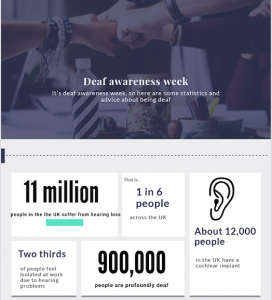
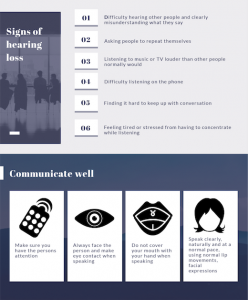
For more information visit the National Deaf Children’s Society
